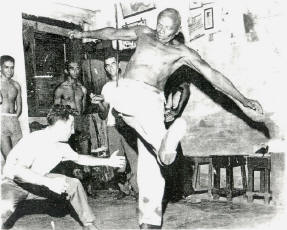I currently spend about 6 hours per week preparing and planning my English classes. This is time for which I am not paid, and it’s not strictly necessary, since I teach from books and I have all the material ready to use.
So why do I do it?
Because it makes all the difference in the student’s experience: whether class is fun, interactive, and educational or dry, monotonous, and frustrating.
If I taught straight from the textbook, class would consist of the following cycle repeated five or six times per class, 34 classes per semester:
1. I give instructions
2. Students do the exercise in the book
3. We check our answers
4. I clarify any questions or doubts.
Booooring.
During my prep time I “massage” the book material, usually in the following ways:
Create a lead-in: Lead-ins are key to warming up students’ minds and mouths. A good lead-in should be interesting and slightly easy for the students’ level. The goal is to get them speaking without having to think too much, and to have them “ace” the exercise, which gives them confidence to tackle the more challenging material with enthusiasm.
Books – particularly business English books – seem to specialize in the driest warm-up activities imaginable. Here’s an example:
Crappy book lead-in: What’s the difference between an invention and an innovation? Discuss.
Dude… I’d have to think hard to distinguish “invention” from “innovation,” and I’m a native speaker. It requires the students to think too much before speaking, and if they don’t know the answer or have any ideas, then they won’t talk at all.
My substitute lead-in: Put the students in pairs and give each pair ten pictures of goofy/unusual inventions (like these). Ask the students to separate them into which inventions they think will succeed in the market, and which ones they think will fail – and discuss why. Every time I use this activity, the students laugh at the crazy inventions and always have something to say about them.
Substitute unclear grammar explanations: Books will often present grammar in a way that’s unclear or too rule-heavy or just plain boring. So I often have to take the book’s topic (for example, present simple vs. present continuous) and think of a better way to present it so that students “discover” the grammar rules themselves step by step, and then I have them practice by using the book’s exercises.
Improve existing exercises: Many of the book’s activities are on the right track, but need tweaks in their execution. Here’s an example from a lesson on networking and small talk:
Work with a partner and talk about the following topics. Try to keep the conversation going for as long as you can: News, weather, sports, hobbies, restaurants, TV/movies, things to do in your city, etc.
This activity is ok but not great. Inevitably some students will be better conversationalists than others, so some pairs will have a one-sentence exchange about each topic and then sit there and say “we’re done” while other students ask each other follow-up questions and continue to converse.
What I did instead: I gave each student a card with three of the topics from the list. Gave them 5 minutes to jot down some notes and questions in order to start a conversation on those topics. Then I had them all stand up, find a partner, and talk for two minutes until I said “change!” – and then they’d have to find a new partner and start a new conversation. Way more fun and dynamic, plus they get to work with different people, so the conversations will be different each time.
I could save myself six hours every week and teach straight from the book. But I can see the difference that this “massaging” of the material makes. I can see students “shut down” as they look at the book and think, “Ho hum… yet another listen-and-fill-in-the-blank exercise on a topic I don’t care about.” When I modify the book material, on the other hand, I see them “light up” as they get into the activities, and I can see their confidence rise as grammar goes from “It’s so confusing” to “Hey – I get it!”
To me, those unpaid six hours are worth it!



